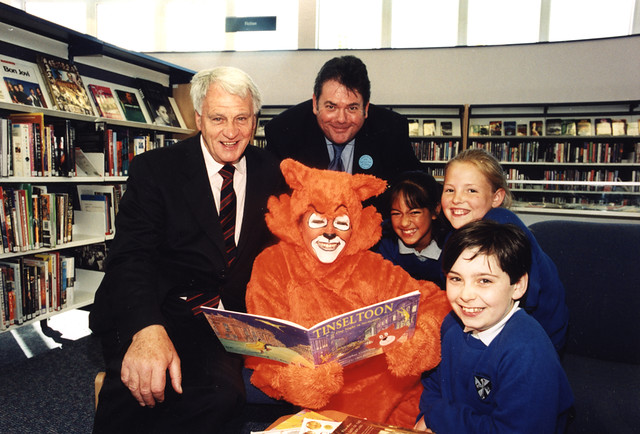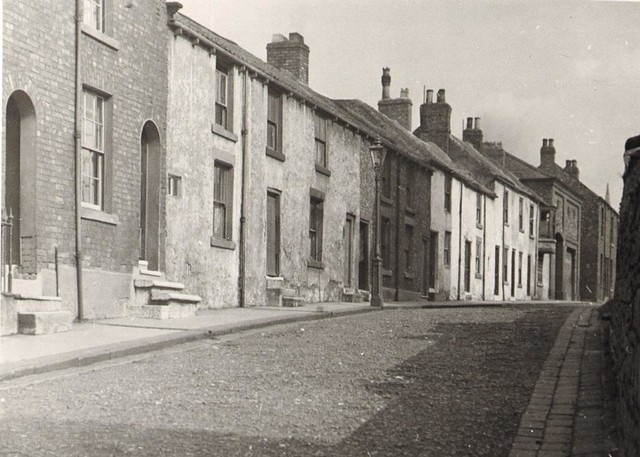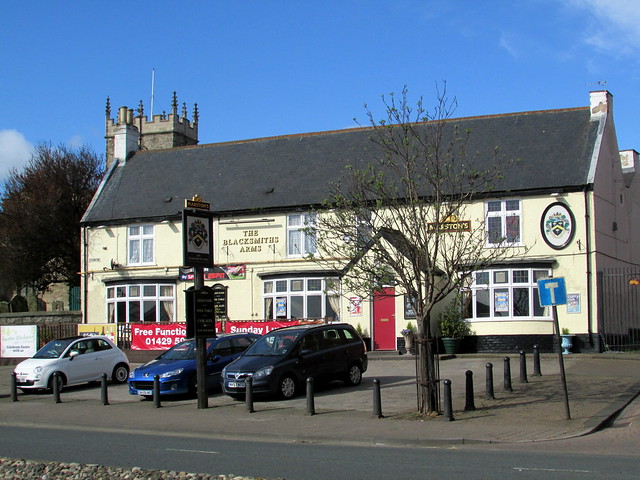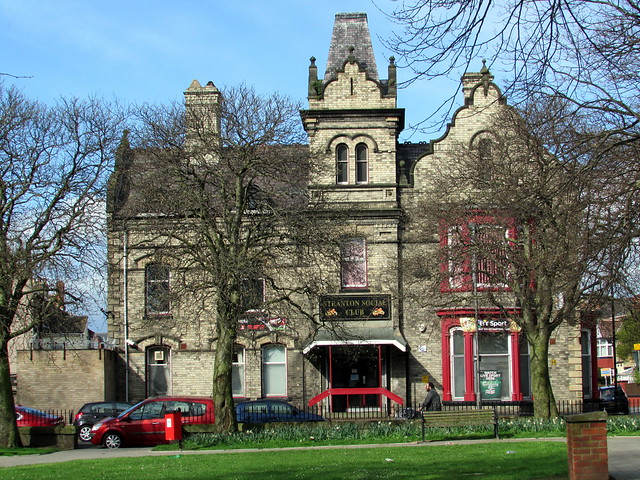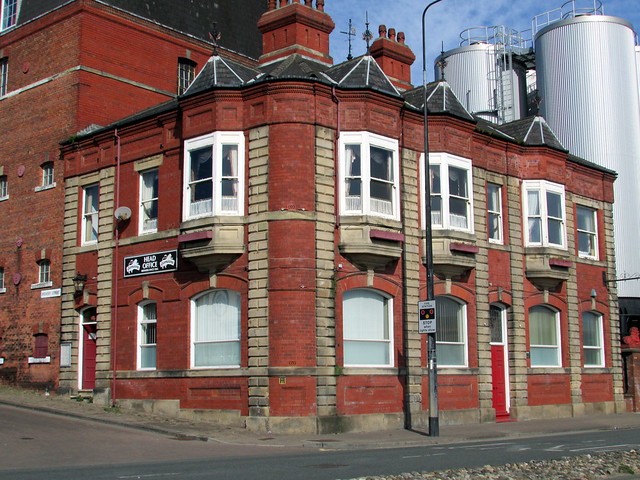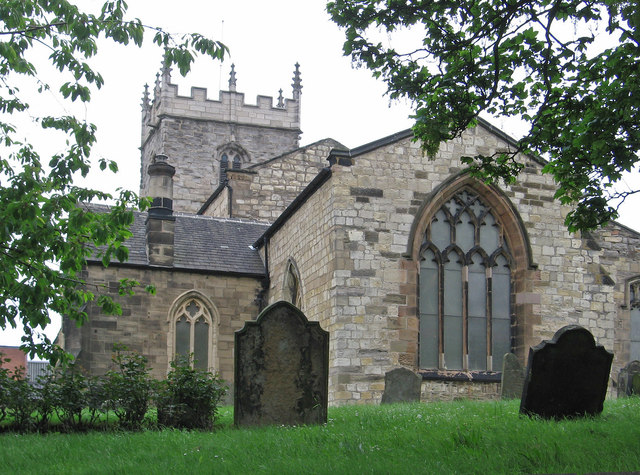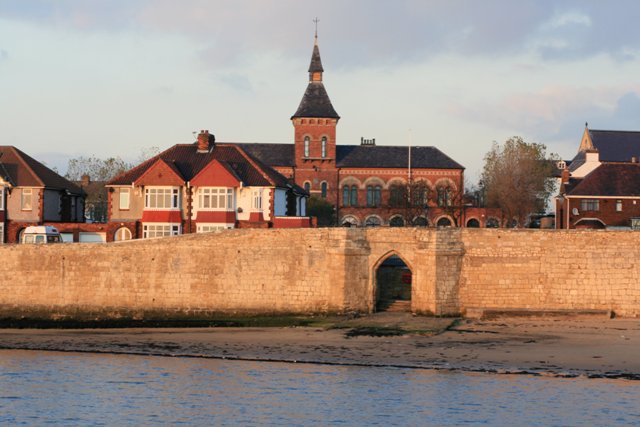That Was the Year That Was - 2004

-
Description
The US elections, the insurgency in Iraq, Yasser Arafat's death, this year had its big news stories. But what else made a splash in 2004? In 2004, Iraq went badly wrong - except for supporters of the insurgency, in which case it went grimly well. Holidaymakers could soon be heading for Libya in their droves, thanks to events this year that made the country more accessible to travellers and foreign investors. Colonel Muammar Gaddafi's current reconciliation drive with the West reaped rewards. In the first quarter of the year, the US lifted a 23-year travel ban and ended trade sanctions to reward the former international pariah state for giving up weapons of mass destruction and vowing to compensate victims of the Lockerbie bombing. A visit by Tony Blair to Tripoli in March sent a signal that Libya was a safe place to travel, according to some British tour operators. A “little” site named TheFacebook.com launched and grabbed the attention of college students everywhere. In 2004, Apple had only just started working on development of its iPhone and no one outside the company knew about it, Samsung was focused on the South Korean market, and the hottest thing in wireless was the success of the I-mode mobile Internet service in Japan. The year 2004 began with a war of the computer worms and ended with running robots as technology stories continually hit the news. In January, the MyDoom computer worm caused worldwide annoyance. It spread to thousands of computers in just a few hours in the guise of an administrator's alert. But it also used infected computers to launch a "denial of service" attack on two US companies, Microsoft and SCO. In this kind of attack a target is bombarded with meaningless data so the system overloads and crashes. The defining tech trend of 2004 probably will be related to the defining trend of 2003 — the laptop’s steady march to overtake the desktop as the face of the PC. Brando, one of the most influential performers of his generation, died in Los Angeles at the age of 80 in July. His short-lived marriages, bitter divorces, child custody battles and torrid affairs certainly made the headlines, but they never ultimately overshadowed his remarkable talent. BBC broadcaster John Peel was Britain's champion of new musical talent for nearly 40 years before he died of a heart attack in October. He led the way in promoting new acts, from David Bowie, through Joy Division to the White Stripes. Former Blue Peter presenter Caron Keating died aged 41 in April, losing her seven-year battle with breast cancer. In March broadcaster Alistair Cooke died aged 95, weeks after giving up his 58-year position as host of Radio 4's weekly Letter From America. Bafta-winning television writer Jack Rosenthal , responsible for early episodes of Coronation Street and London's Burning, and TV presenter and steeplejack Fred Dibnah lost their fights against cancer. Broadcaster and journalist Bernard Levin, Auf Wiedersehen Pet star Pat Roach, US stand-up comic Rodney Dangerfield, Rentaghost star Molly Weir and Guinness Book of Records co-founder and TV presenter Norris McWhirter also passed away in 2004. Superman star Christopher Reeve, who became paralysed after a riding accident in 1995, died of heart failure in October at the age of 52. Actor and raconteur Sir Peter Ustinov, who starred in Spartacus and made the role of Agatha Christie sleuth Hercule Poirot his own, died aged 82 in March from heart failure. Actress Janet Leigh, whose performance as a woman stabbed to death in the shower in Psycho remains a horror archetype, died aged 77 in October, while Hollywood musicals and Dallas star Howard Keel passed away in November aged 85. Cult film director Russ Meyer, whose hits included 1965's Faster Pussycat! Kill! Kill!, died aged 82 of pneumonia complications in September. Musical actress Ann Miller and King Kong heroine Fay Wray also passed away. Singer, pianist and soul pioneer Ray Charles died in June aged 73, barely a year after he played his 10,000th concert. Blind since the age of six, Charles' intense renditions of classic songs earned him 12 Grammy awards and the nickname The Genius. He died of acute liver disease. Singer Sacha Distel, a huge star in his native France who had a worldwide hit with Raindrops Keep Falling on My Head in 1970, died after a long illness aged 71 in July. US funk star Rick James, best known for his 1981 hit Super Freak, was found dead at the age of 56 following a heart attack in August. American rapper Ol' Dirty Bastard, a founding member of influential hip hop act Wu-Tang Clan, died aged 35 in November after a drug overdose. Film composers Elmer Bernstein and Jerry Goldsmith, the writers behind scores to The Great Escape and The Omen, died during the summer. Rock lost one its biggest stars when Darrell "Dimebag" Abbott, guitarist with Damageplan, was killed on stage during a concert in Ohio. Les Gray, singer with glam rock band Mud, The Ramones guitarist Johnny Ramone, Laura Branigan, who had a 1982 hit with Gloria, and New York Dolls bassist Arthur Kane also died this year. 2004 Timeline 1 January – Papers released under the Thirty Year Rule reveal that, contrary to what was believed at the time, The Princess Margaret would not have lost her title nor Civil List payments had she married Group Captain Peter Townsend, a divorced War hero, in the 1950s. 3 January – The BBC cancels the appearance of Coca Cola sponsorship credits in the music charts in its BBC One Top of the Pops show, after criticism from politicians and health campaigners that it would be promoting junk food and unhealthy drink products to teenagers. 6 January - The coroner's inquest into the death of Diana, Princess of Wales and her lover Dodi Al-Fayed is officially opened. The Daily Mirror publishes the blacked out portion of a letter wherein Diana, Princess of Wales alleged that someone was trying to kill her. 7 January – It is announced that a record of nearly 2,600,000 new cars were sold in the United Kingdom during 2003. 8 January – The Queen Mary 2 is christened by Elizabeth II. 13 January - Robin Cook says that the British Museum's Parthenon Marbles must be returned to Greece. Serial killer Dr. Harold Shipman is found dead in his cell; suicide is suspected. The Bichard Inquiry into events preceding the Soham murders formally opens. 14 January – A 45-year old Sudanese man travelling from Washington Dulles International Airport to airport Dubai is arrested en route at London's Heathrow Airport on suspicion of carrying 5 bullets in his coat pocket. 19 January – The English Court of Appeal calls for an end to the prosecution of parents whose babies may have died of Sudden Infant Death Syndrome (cot death) in cases where the only evidence is contended expert testimony. 21 January – The Secretary of State for Defence publishes a White paper Delivering Security in a Changing World, detailing wide-ranging reform of the country's armed forces. 27 January – The vote of Scottish Labour MPs, whose constituents were unaffected by the legislation, help Prime Minister Tony Blair narrowly defeat a rebellion in his own party over the Higher Education Bill – a highly controversial bill to reform higher education funding in England, including the introduction of increased and variable tuition fees – in the House of Commons by 316 votes to 311. 28 January – The Hutton Inquiry into the circumstances of the death of Dr. David Kelly is published. This is taken by most of the press to strongly condemn the BBC's handling of the David Kelly affair and to exonerate the government; the BBC's Director-General, Greg Dyke, chairman of the Board of Governors, Gavyn Davies, and the journalist at the centre of the controversy, Andrew Gilligan, resign. The UK media in general condemns the report as a whitewash. 1 February – Media sources and victim support groups across Britain condemn the £11,000 payouts to the families of the two girls who were murdered at Soham in August 2002 as a "pittance". The compensation was paid out by the Criminal Injuries Compensation Authority. 3 February – Foreign Secretary Jack Straw announces an independent inquiry, to be chaired by Lord Butler, to examine the reliability of intelligence on weapons of mass destruction in Iraq. 5 February/6 February – A party of Chinese cockle pickers is caught by the tides at night in Morecambe Bay, Lancashire, drowning 23 people. 21 bodies are recovered. 6 February – The Home Office confirms that Maxine Carr, convicted with Ian Huntley concerning the Soham murders of 2001, could be released from prison in the next few days. 11 February – Richard Desmond, the owner of the Daily Express and Daily Star tabloids, confirms that he has made a bid for the troubled Daily Telegraph. 15 February – The government are reported to have drawn up plans to break up the BBC in the wake of the Hutton inquiry. 19 February – Foreign Secretary Jack Straw announces that five of the nine Britons held without trial as terror suspects at the Guantanamo Bay prison camp in Cuba, along with a Dane, are to be released. 21 February – Prime Minister Tony Blair comes under pressure from British human rights groups and MPs because of the government's sweeping powers under the Anti-Terrorism Crime and Security Act, which have allowed the detention of 14 foreign terrorist suspects in the UK at what has been described as 'Britain's Guantanamo Bay'. 24 February – The British Olympic Association bans European 100 meter champion Dwain Chambers from competing in the Olympic Games for life for a positive test for the designer steroid THG. 25 February – Katharine Gun, formerly an employee of British spy agency GCHQ, has a charge of breaching the Official Secrets Act dropped after prosecutors offered no evidence, apparently on the advice of the Attorney General for England and Wales. Gun had admitted leaking American plans to bug UN delegates to a newspaper. 26 February – Clare Short, former Cabinet Minister, alleges on the BBC Today radio programme that British spies regularly intercept UN communications, including those of Kofi Annan, its Secretary-General. 29 February – Middlesbrough F.C. win their first trophy in their 128-year history by defeating Bolton Wanderers F.C. in the Football League Cup Final. Vauxhall launches the fifth generation of its popular Astra family hatchback. It is initially just available as a five-door hatchback, with a three-door "Sporthatch" and a five-door estate due later this year. 11 March – Tory and Labour support is equal on 35% for the second time in nine months, raising the sceptre of a hung parliament at the next general election which is expected within a year. 16 March – Fifteen-year-old Scottish boy Kriss Donald abducted, tortured and murdered by Pakistani gang in racially motivated attack in Glasgow. 21 March – Architect Zaha Hadid becomes the first female recipient of the Pritzker Prize. 19 April – Tony Blair announces a change in government policy: there is to be a referendum on the proposed EU Constitution. 28 April – Landmark office building 30 St Mary Axe ("The Gherkin") in the City of London, designed by Norman Foster, opens. 10 May – Maxine Carr is released from prison with a new identity after serving half of her sentence for perverting the course of justice. 11 May – Stockline Plastics factory explosion: four people die in an explosion at a factory in Glasgow. 14 May – Piers Morgan is dismissed as editor of the Daily Mirror after the newspaper published fake pictures of Iraqi prisoner abuse. 19 May – Fathers 4 Justice stage a protest in the House of Commons at Prime Minister's Question Time by throwing purple powder at Tony Blair. 22 May – Manchester United beat Millwall 3-0 in the FA Cup final. 27 May – The Member of Parliament for Leicester South, Jim Marshall dies, triggering a by-election. 31 May – Premiere of the children's animation series Peppa Pig (produced by Astley Baker Davies) on Channel 5 television. 2 June – Jose Mourinho, the Portuguese coach who led FC Porto to European Cup glory on 26 May, is named as the new manager of Chelsea F.C. on a three-year contract. 6 June – Sixtieth anniversary of D-Day. Last minute pressure forces First Minister of Scotland Jack McConnell to attend commemorations. Rhodri Morgan, the First Minister of Wales takes flak for not doing the same. 10 June - European, local and regional elections take place. Labour lose many council seats. A rebranding of the Football League sees Division One become the Football League Championship, Division Two become League One and Division Three become League Two. 11 June – The incumbent Ken Livingstone is announced as the winner of the election for Mayor of London. 14 June – Results of the European elections are announced. United Kingdom Independence Party (UKIP) are the main gainers, increasing from 3 to 12 MEPs. 16 June – Liverpool F.C. appoint the Spaniard Rafael Benitez as their new manager. 21 June – The Football League club Wimbledon, who relocated to Milton Keynes from South London last autumn, are renamed Milton Keynes Dons to reflect their new location. 24 June – England are knocked out of Euro 2004 by Portugal, on penalties. 2 July - An openly gay cleric, Jeffrey John is installed as the Dean of St Albans. A court rules that Humberside Police Authority must suspend the Chief Constable, David Westwood, in accordance with the Home Secretary (David Blunkett)'s demands. 6 July – The Queen unveils a memorial fountain to Diana, Princess of Wales. 8 July – Marks and Spencer overheads turn down a takeover bid by retail tycoon Philip Green. 12 July – Chancellor of the Exchequer Gordon Brown announces the massive loss of 100,000 civil service jobs in the UK; the savings to be put into front-line services such as Health and Education. 13 July - The Public Administration Committee of the House of Commons recommends massive changes to the British Honours System including scrapping knighthoods and renaming the Order of the British Empire to the 'Order of British Excellence'. The Countryside Agency publicises a new Countryside Code in advance of the 'Right to Roam' coming into effect in September across England and Wales. The House of Lords makes a hostile amendment to the Constitutional Reform Bill that would retain the name of the office of Lord Chancellor. 14 July – The Butler Inquiry releases its report, mildly criticising the government in their use of intelligence relating to Weapons of Mass Destruction in Iraq. 15 July – Leicester South and Birmingham Hodge Hill by-elections held. The Hodge Hill by-election is a Labour hold, but the party loses the Leicester South seat to 37-year-old Liberal Democrat Parmjit Singh Gill, an Indian Sikh who is the party's first ethnic minority MP. 18 July – North Yorkshire police launch a murder hunt after 27-year-old twin sisters Claire and Diane Sanderson are found dead in a flat in Camblesforth, near Selby. 19 July – The Government announces backing for the Crossrail project. 20 July – Government to publish results of review into Council Tax in England. 23 July – Tony Blair announces that Peter Mandelson is to become Britain's new European Commissioner. 9 August – West Bromwich Albion terminate the contract of striker Lee Hughes as he is sentenced to six years in prison after being found guilty causing death by dangerous driving, having killed a 56-year-old man in a collision near Coventry on 22 November 2003. 13–29 August – Great Britain participates in the 2004 Summer Olympics in Athens winning a total of 9 gold, 9 silver and 12 bronze medals. 16 August – Boscastle flood of 2004: flash floods destroy buildings and wash cars out to sea in Cornwall. 28 August – Kelly Holmes wins her second gold medal at the 2004 Summer Olympics. 13 September – A Fathers 4 Justice campaigner dressed as Batman breaches security at Buckingham Palace. 15 September – Parliament is suspended after pro-hunt campaigners break into the House of Commons. 1 October – Tony Blair announces his intention to resign as Prime Minister of the United Kingdom if Labour win the next General Election, so he will not have to stand for a possible fourth term in the position. 7 October – British hostage Ken Bigley, of Liverpool, is beheaded by militants in Iraq. 9 October – Scottish Parliament Building in Edinburgh, designed by Enric Miralles, is opened. 19 October – British aid worker Margaret Hassan is taken hostage in Iraq. 4 November – A referendum is held in North East England on the establishment of elected regional assemblies. The majority of voters said "no" to the plans. 6 November – Ufton Nervet rail crash: Seven people are killed when a train is derailed by a car deliberately left on a level crossing in Berkshire. 15 November – Children Act clarifies most official responsibilities for children, notably bringing all local government functions for children's welfare and education under the authority of local Directors of Children's Services. 16 November - The government announces plans to prohibit smoking in most enclosed public places (including workplaces) within the next three years. It is reported that Margaret Hassan is dead after her family receive a video recording supposedly showing her being killed. 18 November – Parliament passes the Hunting Act 2004 banning fox hunting in England and Wales. 20 November – Launch of the Swift Gamma-Ray Burst Mission, a joint United States, UK and Italian developed spacecraft, designed to study gamma-ray bursts. 28 November – Wales Millennium Centre in Cardiff is opened. Ford launches the second generation of its best-selling Focus family car that was originally launched in September 1998. 2 December – David Bieber, a 38-year-old former United States marine, is found guilty of murdering PC Ian Broadhurst in Leeds on Boxing Day last year. He is sentenced to life imprisonment and the trial judge recommends that he should never be released from prison. After his conviction, it is revealed that Bieber was wanted in connection with a 1995 murder in Florida. It is also revealed that he had entered Britain by using the name Nathan Wayne Coleman – who was really a child who had died in infancy in 1968. 14 December – Millau Viaduct in France, designed by British architect Norman Foster, is opened. 15 December – David Blunkett resigns as Home Secretary after three-and-a-half years in the role. 20 December – Northern Bank robbery in Belfast, £26.5 million is stolen. 26 December – A significant number of Britons are among the thousands of people killed by a tsunami in the Indian Ocean. The victims are killed in countries including Indonesia and Thailand. Television 4 February – ITV announce the comedian Bradley Walsh is to join Coronation Street as the nephew of factory owner Mike Baldwin (Johnny Briggs). The news comes as it is announced that five actors will leave the soap over the next twelve months—Adam Rickitt (Nick Tilsley), Susie Blake (Bev Unwin), Iain Rogerson (Harry Flagg), Katherine Hunt (Angela Harris) and Thomas Craig (Tommy Harris). Beverley Callard (Liz McDonald) and Jane Danson (Leanne Battersby) are also set to return to the series in the summer. UKTV announce plans to rebrand all their UK prefix channels as UKTV. UK Horizons will also be replaced by UKTV Documentary and UKTV People from 8 March. Five confirms that The Terry and Gaby Show will be axed when it finishes its current run on 26 March. 5 February - Five actors from Coronation Street are axed by new producer Tony Wood. Adam Rickitt (Nick Tilsley), Susie Blake (Bev Unwin), Iain Rogerson (Harry Flagg), Katherine Hunt (Angela Harris) and Thomas Craig (Tommy Harris) will all leave when their contracts come to an end. 9 February – Kerry McFadden wins the third series of ITV1's I'm a Celebrity... Get Me Out of Here!. ITV CHRISTMAS TV 2003 Christmas Eve Wednesday 24th December 2003 ITV1 London 5.05am CITV Boobah 5.25am Engie Benjy 5.35am Tractor Tom 5.45am Mopatop's Shop 5.55am Morning News 6.00am GMTV 9.25am CITV Kipper 9.35am Hey Arnold! 10.05am Sabrina the Teenage Witch 10.35am The Willows in Winter animation 12.00 Love 2 Shop 12.30pm Lunchtime News 12.50pm Regional News, Weather 1.00pm Today with Des and Mel 2.00pm Kings and Queens 3.00pm Santa Claus Brothers 4.00pm Film : Star Wars Episode 1 : the Phantom Menace (1999) 6.20pm Christmas You've Been Framed! 6.50pm ITV Evening News, Weather 7.00pm Emmerdale 7.30pm The Bill 8.30pm Coronation Street 9.00pm The Real Beckhams 10.30pm Tarrant on TV Christmas 11.10pm ITV News, Regional News, Weather, Regional Weather 11.25pm Christmas Service from Manchester Cathedral 12.50am Film : The Go-Between (1971) starring Julie Christie, Alan Bates 2.55am Film : Rainbow (1995) starring Bob Hoskins, Dan Aykroyd Christmas Day Thursday 25th December 2003 ITV1 London 4.25am CITV Boobah 4.45am Engie Benjy 4.55am Tractor Tom 5.10am Mopatop's Shop 5.15am Yoko! Jakamoko! 5.20am Tractor Tom 5.35am Boobah 5.55am Morning News 6.00am GMTV Rockabye Bubble 6.20am Ni Ni's Treehouse 6.40am Boohbah 7.00am Diggin' It 9.25am A Small Miracle 10.00am Bethlehem Follow the Star 11.00am My Favourite Hymns 11.30am Film : Doug's 1st Movie (1999) Première 12.50pm Cartoons 1.10pm ITV News, Weather 1.20pm Film : Turner and Hooch (1989) 3.00pm The Queen 3.10pm Film : Tomorrow Never Dies (1997) 5.15pm Celebrity Who Wants to Be a Millionaire ? 6.15pm ITV Evening News, Regional News, Weather 6.25pm Creature Comforts 6.40pm Emmerdale 7.40pm Coronation Street 8.40pm World Idol 10.10pm Creature Comforts 10.25pm ITV News, Regional News, Weather 10.35pm Celebrity Who Wants to Be a Millionaire ? 11.35pm Film : Fierce Creatures (1997) 1.15am Christmas.........Forever 2.20am Film : The Stars Fell on Henrietta (1995) 4.00am-4.50am CD : UK Boxing Day Friday 26th December 2003 ITV1 London 4.50am CITV Boobah 5.10am Engie Benjy 5.20am Tractor Tom 5.35am Boobah 5.55am Morning News 6.00am GMTV Rockabye Bubble 6.20am Ni Ni's Treehouse 6.40am Boobah 7.00am Diggin' It 9.25am CITV Meg and Mog 9.30am The Last Polar Bears 9.50am Sabrina the Teenage Witch 10.25am Busted Christmas Special 11.00am World Idol 12.30pm Lunchtime News, Weather 12.45pm On the Ball 1.35pm Rugby World Cup Review 2.45pm Film : Zulu (1964) 5.05pm ITV New, Sport, Weather 5.20pm You've Been Framed! 6.10pm Emmerdale 6.40pm Film : The Grinch (2000) starring Jim Carrey Première 8.30pm Coronation Street 9.00pm Agatha Christie's Poirot : Sad Cypress 11.00pm ITV Weekend News, Regional News, Weather, Regional Weather 11.15pm The Premiership 12.50am Film : The Rocky Horror Picture Show (1975) 2.40am Entertainment Now 3.10-4.50am Film : Little Miss Maker (1980) BRIT Awards The 2004 BRIT Awards winners were: Best British Male Solo Artist: Daniel Bedingfield Best British Female Solo Artist: Dido Best British Group: The Darkness British Breakthrough: Busted Best British Single: Dido – "White Flag" Best British Album: The Darkness – "Permission to Land" Best British Dance Act: Basement Jaxx Best Pop Act: Busted Best British Urban Act: Lemar Best British Rock Act: The Darkness Best International Female Solo Artist: Beyoncé Best International Male Solo Artist: Justin Timberlake Best International Group: The White Stripes International Breakthrough Artist: 50 Cent Best International Album: Justin Timberlake – "Justified" Outstanding Contribution: Duran Duran -
Owner
brizzle born and bred -
Source
Flickr (Flickr) -
License
What does this mean? Attribution-NonCommercial-ShareAlike License
-
Further information
Link: https://www.flickr.com/photos/20654194@N07/18516211922/
Resource type: Image
Added by: Peter Smith
Last modified: 7 years, 11 months ago
Viewed: 946 times
Picture Taken: 2015-06-06T12:18:35 -
Co-Curate tags


